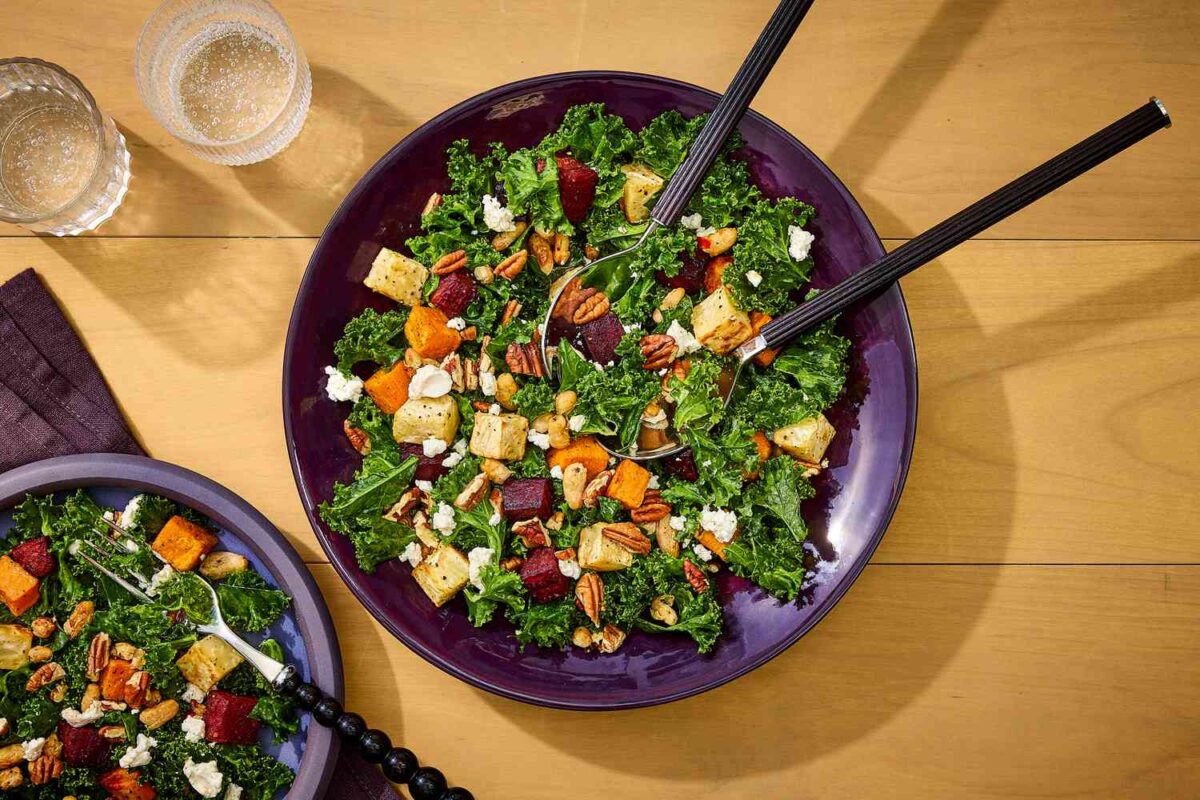Blog
5 Anti-Inflammatory Foods to Stock Up On This Summer, According to Dietitians

- Incorporating seasonal summer produce into your meals, along with healthy staples, can help protect against chronic inflammation.
- Strawberries, okra and plums are versatile and rich in anti-inflammatory nutrients.
- Pair produce with foods rich in healthy fats, like walnuts and salmon, for a well-rounded anti-inflammatory diet.
Did you know that chronic inflammation can influence everything from your heart health and immune function to your energy levels and overall sense of well-being? While some inflammation is necessary for healing and keeping harmful pathogens at bay, chronic inflammation has been linked to a wide range of health concerns, including heart disease, type 2 diabetes and even cognitive decline. Fortunately, the foods you eat may help reduce and even prevent the onset of chronic inflammation. Diets rich in fiber, omega-3s, antioxidants and colorful seasonal produce may be particularly effective.
Eating seasonally means enjoying produce at its peak freshness and flavor. Need a little help getting started? We spoke with dietitians who shared their top five anti-inflammatory foods to stock up on this summer.
1. Strawberries
This sweet summer treat packs some serious anti-inflammatory benefits. Tammie S. Brown, MPH, RDN, LDN, notes that strawberries are packed with polyphenols, which are essentially little gatekeepers of the body. “They protect our body from outside interference that can occur through stress, pollution or even aging,” she says. A recent study in adults with metabolic syndrome found that daily consumption of strawberries for 4 weeks was linked with significant improvements in biomarkers of inflammation and antioxidant status.
Try adding strawberries to a yogurt parfait or tossing them into a spinach salad. Brown suggests making a strawberry puree with honey or maple syrup and adding it to oatmeal, smoothies or vanilla ice cream.
2. Walnuts
Walnuts are one of the most anti-inflammatory nuts you can eat, thanks to their combination of omega-3 alpha-linolenic acid (ALA), fiber and polyphenols. Research shows that ALA may reduce the production of inflammatory markers and protect cells from oxidative damage. Additionally, when walnuts are digested, their polyphenols are transformed by the gut microbiota into urolithins—compounds that have been shown to reduce inflammation and support metabolic health.
Walnuts are incredibly versatile, making it easy to incorporate them into your daily regimen. Enjoy them as a crunchy snack on their own, stir them into a warm bowl of oatmeal or sprinkle them over salads for added texture.
3. Okra
Okra is a summertime staple, especially in the South. In addition to its comfort-food appeal, okra is rich in compounds that reduce inflammation within cells. Sharniquia White, M.S., RDN, LDN, notes that while okra is often overlooked because of its sometimes-slimy texture, it’s incredibly nutritious. “Nutritionally this fruit (yes, it’s a fruit) packs a mighty punch!” she says. “Rich in vitamin A and C, antioxidants and magnesium, okra has many things that may help reduce inflammation.” Vitamin A supports the immune system and helps maintain healthy tissues, while vitamin C acts as a powerful antioxidant that helps to neutralize harmful free radicals. Magnesium is also important for combating chronic inflammation, because it helps regulate inflammatory responses. Together, these nutrients work within cells to reduce oxidative stress, lower inflammation and support overall cellular health.
If you’re new to cooking with okra, White suggests using high heat, which reduces the slimy texture. For example, she recommends roasting or grilling it for an easy side dish, cooking it in an air-fryer for a crunchy snack or incorporating it into a stir-fry.
4. Salmon
Salmon is an excellent source of EPA and DHA—two types of omega-3 fatty acids, known for their ability to reduce inflammation throughout the body. These healthy fats work by interfering with the production of inflammatory messengers, like eicosanoids and cytokines. They also help regulate the immune system’s response to stress or injury. Thanks to its concentration of EPA and DHA, studies have found regular consumption of salmon is linked with lower circulating levels of inflammatory markers.
For the ultimate easy, healthy summer dinner, serve grilled salmon fillets with a fresh cucumber and tomato salad, or form canned salmon into patties for a budget-friendly alternative.
5. Plums
Plums offer a sweet and pleasantly tart flavor along with a generous dose of anti-inflammatory compounds. White mentions that stone fruits, like plums, are rich in antioxidants, fiber and phenolic compounds, which have been linked to anti-inflammatory effects. These compounds have been shown to help regulate the body’s inflammatory response by suppressing pro-inflammatory cytokines and enzymes, which can contribute to oxidative stress.
There’s nothing better than biting into a fresh, juicy plum from the farmer’s market, though we also recommend enjoying them sliced and added to summer salads or roasted and drizzled with honey and a sprinkle of cinnamon for a simple dessert.
Anti-Inflammatory Recipes to Try
Our Expert Take
Inflammation is a natural and necessary process that helps the body heal from injury and fight off illness. However, when inflammation becomes chronic, it can contribute to the development of long-term health issues such as heart disease, diabetes and autoimmune conditions. Diet plays a powerful role in managing inflammation. Enjoying more seasonal summer produce (like strawberries, okra and plums) alongside nutrient-dense staples (like salmon and walnuts) may reduce inflammatory markers and protect your body against chronic disease. Prioritizing these anti-inflammatory foods is a delicious way to invest in your overall health and well-being, one bite at a time.












